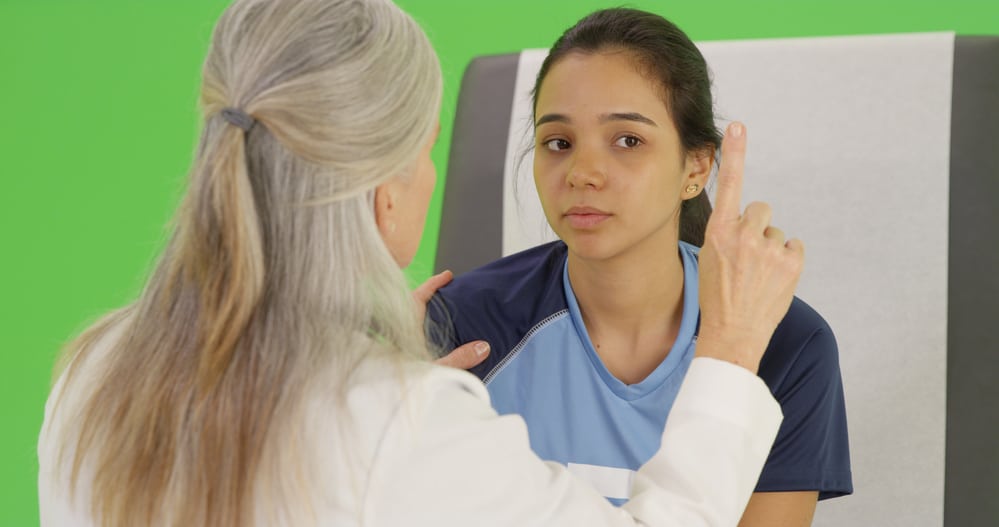
Children generally go for their back-to-school routine checkups. It is a once-a-year visit to the pediatrician. However, another routine visit gets added to this once the child reaches middle school, high school, or beyond. This routine visit is called sports physicals. It is quite different from the back-to-school routine checkup. This checkup is necessary if your child is involved in sports. In some cases, they may not be able to participate in sports without this checkup in some schools.
These medical exams are important because they help to understand if the child has any medical condition that will impact his or her ability to play sports safely. They also help to understand if there are high risks for injuries while performing physical activities. In some cases, these sports exams can help to diagnose issues beforehand and reduce the risk for life-threatening conditions, like sudden cardiac arrest due to any heart issue.
Moreover, any restrictions that were suggested before can be lifted after diagnosing if no issues are found.
What can you expect during sports physicals exams?
In a sports physical exam, the doctor reviews the child’s medical history and looks for specific issues that can be problematic if the child participates in any particular physical activity.
Here is a list of things that the doctor can ask, according to The American Academy of Pediatrics (AAP):
- Does the child have any existing medical conditions?
- Family medical history
- Did the child have any surgeries?
- Has the child suffered any heat-related illnesses?
- Is the child taking any medications, supplements, or herbal therapies?
- Menstrual cycle history in the case of female athletes
- Weight management issues like sudden weight gain or weight loss.
- Any cardiovascular issues or concerns.
- Concerns regarding blood pressure
- Any breathing problems like asthma
- Any history of musculoskeletal problems or injuries
- Any traumatic brain injury or signs of a concussion
- Mental health issues such as anxiety and depression
- What is the identifying gender, and what was the gender at birth?
The questions related to mental health and gender were not always a part of this list. These questions were added recently, in 2019. In the revised guidelines, various other additions were made that involved doctors addressing problems associated with bullying, drug use, and birth control. General questions related to feeling shortness of breath during the activities or passing out during performing activities will help the doctor to get various vital information about the child as well.
Besides asking different questions to the child, the doctor will check the child’s height, weight, and vision. Doctors also perform a musculoskeletal exam. This is crucial to ensure that the child does not have any bone-related issues or joint abnormalities. Any swellings in the body or problems with posture are also diagnosed to ensure there are no health issues. A cardiac exam is also performed. It is done to check the heart rate and blood pressure. They will also try to hear if there are any abnormal sounds. A routine blood or urine test is not performed during a sports physical.
Importance of sports physicals
Although all schools did not make a sports physical exam mandatory to take part in sports, it is crucial that you take your child for one. This is because there are many benefits of a sports physical exam. Here are they:
1 . They determine the current health condition of your child
Regular physical exams are different from sports physicals. This is because regular physical exams involve checking things like height, weight, blood pressure, vital signs, hearing, and vision. However, a sports physical exam involves all those things and a checkup of joint and muscle problems. Doctors will check for other health problems related to the heart, lungs, knees, neck, back, and shoulders.
2 . The chances of an injury or other medical issues are reduced
In a sports physical exam, the doctor examines the child to see if he or she is fit to play sports. Therefore, the doctor may find any underlying issues related to the heart, nervous system, or musculoskeletal system. After finding these issues, they will diagnose the severity. They will also give you suggestions that will help to manage the condition.
3 . They can help to keep track of things
There are a lot of places where you can take your child for a sports physical exam. Your primary care physician or any urgent care can help to take these exams. Irrespective of where you decide to visit with your child, they can help to track your child’s health progression. Therefore, they can flag things whenever there are any issues. For instance, if your child gets injured, the sports physical exam will help to determine if the wound is healing or not.
4 . Underlying injuries and health issues can be detected
In most cases, the only medical exam that most teen athletes regularly take is the sports physical exam. Therefore, these physical exams can help to detect various underlying health issues like hernia, obesity, hypertension, etc. in children. These can be very easily treated when the child is getting timely medical help. However, they can worsen over the years if left untreated.
You should only take your child for a sports physical exam to places that you absolutely trust. Family Medical Centers is one of the most trustworthy medical centers you can visit for your child’s sports physical exams. Currently, we are serving at two different locations in Florida; Trinity and Port Richey. To get in touch with our team at Port Richey, please contact (727) 861-7043. If you want to visit the Trinity center, you should call (727) 375-5885 for an appointment.
